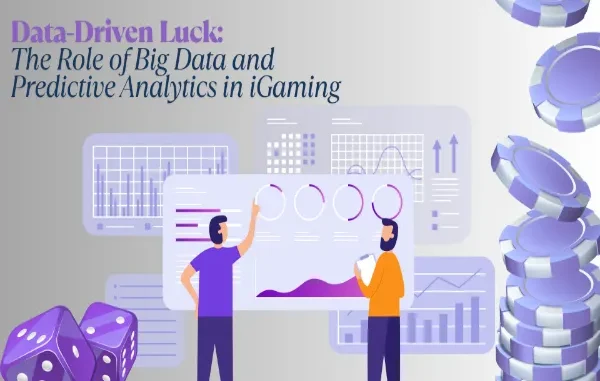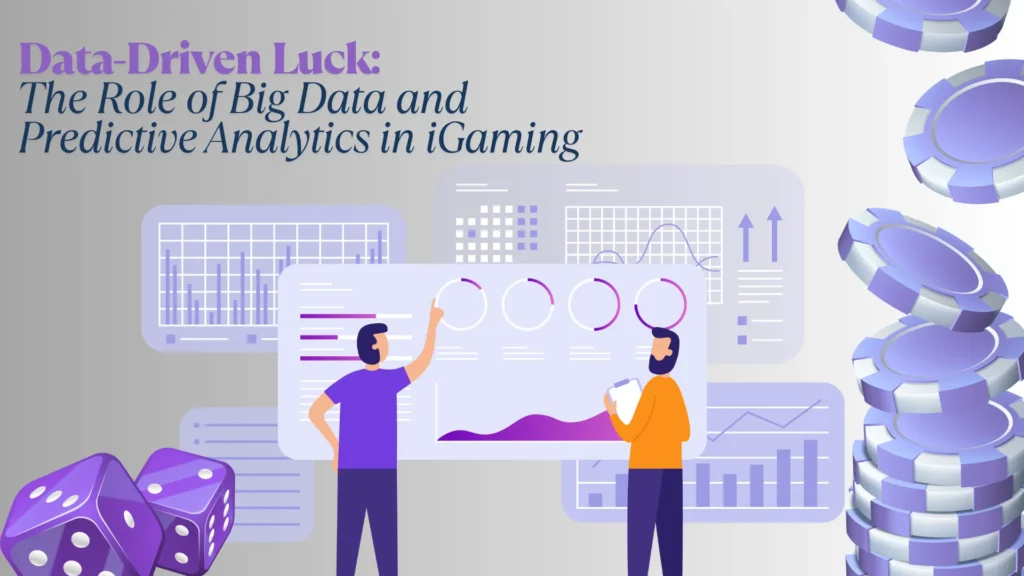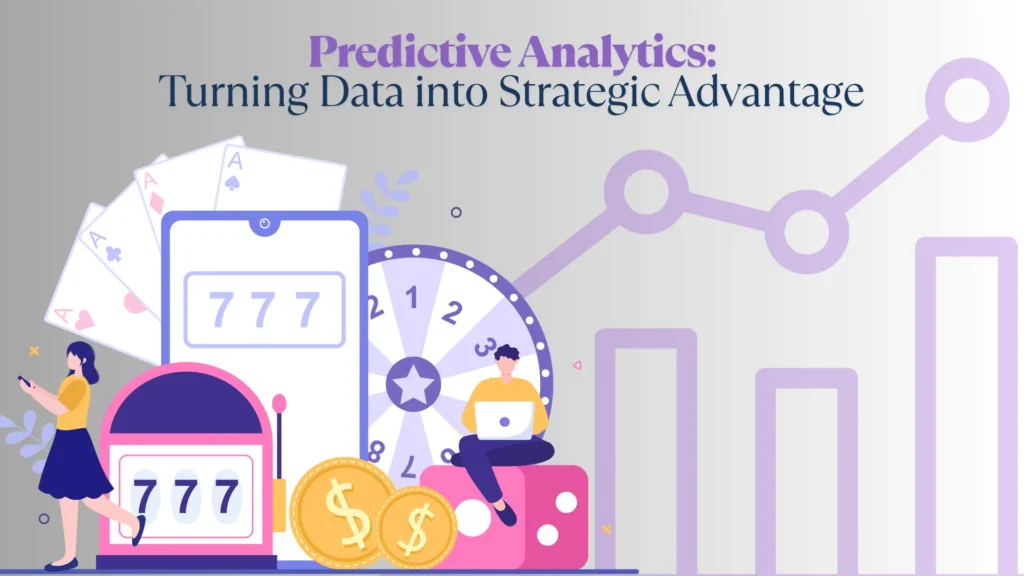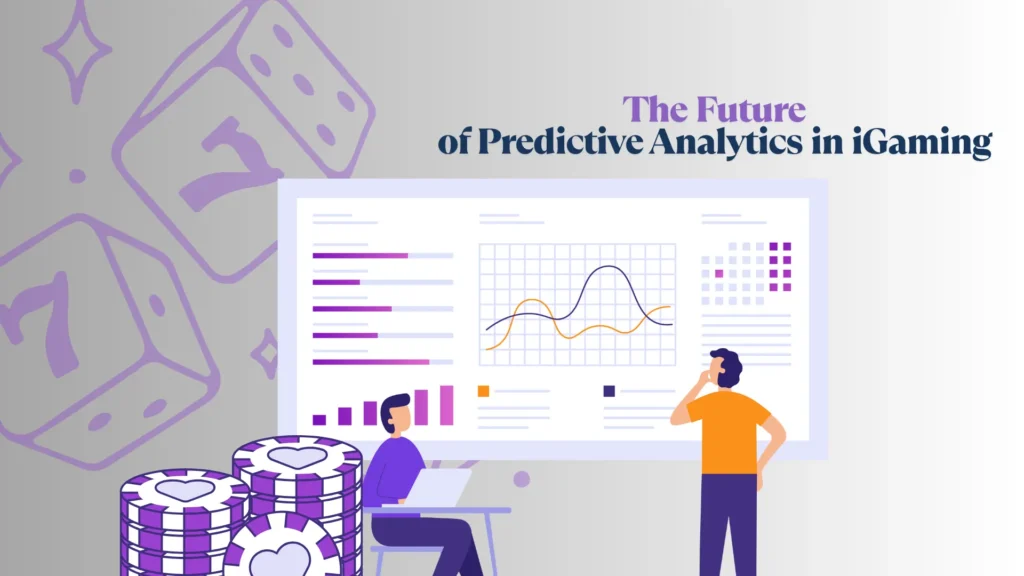

Since online casinos invaded the gambling space, this highly contested industry seems to be almost bursting at its seams. As annual revenue hits billions of dollars, the sector continues to push new limits, particularly with the help of big data analytics. Every reel spin and bonus claim stands as a source of valuable data. And operators are doubling down on leveraging this information to make better decisions and enhance user experiences.
This post explores what is big data and its role in personalizing iGaming experiences, predicting trends, and boosting revenue generation.
Understanding How Big Data is Shaping the iGaming Sector
Generally, big data is the vast amounts of information collected every second. In the iGaming setting, this can be as simple as data collected when creating an online account on a trusted platform, such as Vincispin and Vinci Spin casino then starts collecting more data points based on various factors. The section below looks at the intricacies involved in collecting iGaming big data.
What Qualifies as Big Data in Online Gaming?
Casinos generate huge amounts of data every day. This includes:
- Player sign up details
- Transaction history, including preferred methods and amounts
- Gaming preferences
- Bonus usage
- Session length and frequency
- Player demographics such as location, age, gender, and language
- Device type
Understanding how to handle such volumes of data and extract value from it is crucial to increasing efficiency in iGaming operations.
Types of Big Data Collected
From such huge chunks of information, operators often segment it for easier analysis. Examples of the segmented data types include:
- Player behaviour data, such as bet sizes, game choice, to bonus use, and everything in between.
- Transactional data, including preferred payment method and currency/conversion history, etc.
- Responsible gaming and compliance data, including session limits, gambling behaviour triggers, and other factors.
- System or technical data, including page load times, crash reports, and server logs, among others.
- Engagement data, usually collected during a marketing campaign. This includes clickthrough rates, ad impressions, conversions, and more.
Ethical Data Collection and GDPR Compliance
As per GDPR guidelines, iGaming companies process big data in a transparent, fair, and lawful manner. This entails a clear player disclosure that their information, along with the types of data involved, is being collected. You can find such information on the platform’s privacy policy page.
Predictive Analytics: Turning Data into Strategic Advantage

Collecting big data is more than just a buzzword. It’s a marketing must-have. In fact, it is where top iGaming operators identify strengths, issues, and make strategic decisions for future growth. Here’s how:
Algorithms that Know the Player’s Next Move
Blasting new players with the same welcome bonus might lure them into making that initial deposit. This is especially true if you tap into the growing trend of using NFL stars to promote the offer. But without leveraging big data to see what specifically attracted the new players, you risk losing them to a competitor offering a similarly enticing offer. Predictive analytics provides accurate insights into player actions for more targeted offerings and tailored experiences.
Real-Time Decision-Making Engines
Through analyzing big data, iGaming companies can track patterns in player behaviour. In turn, predictive analytics models can anticipate player traffic, service demand, as well as potential risks. It is from such data that these companies make real-time decisions for more efficient operations.
Personalized Game Recommendations and Bonuses
Modern iGaming customers are no longer impressed with a one-size-fits-all approach. They want more tailored experiences. This requires knowing them and their patterns. Using predictive analytics, tracking their behaviour and patterns over a period of time is easy, allowing you to create customized profiles. That way, every time they login to your platform, they’ll find personalized bonuses and game recommendations.
Business Applications and Strategic Benefits
If you’re going to take advantage of big data and predictive analytics in your iGaming operations, here are some benefits you can expect:
Player Retention and Lifetime Value Forecasting
Harnessing a 360-degree view of player behavior and preferences — available from the data trail left behind — can help boost player retention efforts. After all, the more players get what they want, the more likely they are to keep playing on your site. Plus, when you understand player actions and tailor their experiences, you can better predict your company’s lifetime value.
Fraud Detection and Responsible Gaming
Through the use of predictive analytics, iGaming companies can easily spot fraudulent activities and mitigate potential risk. Whether it’s based on harmful player patterns or an irregular transactional history, predictive models can flag suspicious behaviour in real time.
Optimizing Game Design Based on Data Feedback
Top online casinos like Blazingwildz offer over 6,000 games from hundreds of developers. Yet, most players engage with only a select few. That’s where tailoring game design comes in handy. Big data analytics reveal which game elements are most popular. It gives designers valuable insights into how they can refine gameplay and offer features to encourage longer play.
Challenges and Considerations
Collecting big data in iGaming also involves several challenges.
Data Security and Trust Issues
iGaming companies collect a vast amount of sensitive user data. Yet, there has been a 71% year-over-year increase in cyber attacks in 2024. As such, unauthorized access, data breaches, and non-compliance with international privacy policies continue to be a growing concern.
Avoiding Manipulation and Ensuring Fairness
Unfortunately, gaining insights into player patterns and preferences can result in manipulative tactics. That includes creating game designs that encourage extended play and targeting vulnerable groups. Ensuring fairness, as opposed to exploiting behavioural triggers, has been a key challenge.
Regulatory Constraints Across Jurisdictions
iGaming companies must consider local regulations on data collection, storage, transfer, and use. Keeping up with the different rules across jurisdictions has proved challenging for operators over the years.
The Future of Predictive Analytics in iGaming

Some future trends to expect in the realm of big data and predictive analytics in iGaming include:
Emerging Technologies: Blockchain, AI, and Quantum Computing
As players demand more personalization, we expect an increase in the use of upcoming tech. That includes leveraging blockchain for more security as well as AI and machine learning for better and more precise analytics. Also, we expect an increase in the use of quantum computing to increase accuracy and speed up the process of analyzing big data.
Gamification Meets Data Science
iGaming companies are expected to gather even more big data in the years to come. By incorporating game-like elements, players may feel more comfortable sharing their data. Plus, data science techniques such as machine learning will be crucial in uncovering valuable patterns.
Will “Luck” Be Redefined by Data?
The essence of chance is not going anywhere. But luck, as we know it now, will change in the years to come. How? iGaming companies will improve at augmenting player journeys. The result? More hyper-personalized experiences and data-driven game designs, among other enhancements.
Conclusion
The current iGaming landscape is highly competitive. To maintain an upper hand, iGaming companies keep looking for more big data opportunities. Although ethical, security, and regulatory concerns must be addressed, big data will remain the cornerstone of innovation and customized experiences in the iGaming world.






Leave a Reply